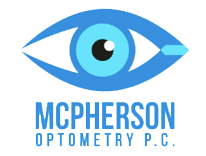5 Things You Need to Know About Age-Related Macular Degeneration
Macular degeneration is an eye condition that disproportionately affects the aging population. Macular degeneration is a progressive disease that can lead to total blindness over a period of years. It sometimes begins so slowly that those who suffer from it often believe they’re just experiencing normal age-related vision loss. Fortunately, even though there’s no absolute cure for age-related macular degeneration, advances in medical technology have resulted in several positive treatment options. Here’s what you need to know about age-related macular degeneration:
There Are Several Risk Factors for Developing Macular Degeneration
Those over the age of 55 are far more likely to develop age-related macular degeneration than their younger counterparts. Other risk factors include a history of smoking, abnormal blood pressure or elevated cholesterol, and a family history of macular degeneration. You are also at greater risk if you’re Caucasian.
The Early Stages of Macular Degeneration Sometimes Have No Symptoms
Those in the initial stages of macular degeneration experience no symptoms. Unfortunately, a certain number of patients don’t have any symptoms even when they’ve progressed into the intermediate stage. This is why it is important for anyone who falls into the risk categories to schedule an eye exam on a regular basis. Your eye doctor can administer several tests designed to determine whether you have developed this condition.
Possible Symptoms of Early-Stage Macular Degeneration
There are several possible signs that you may have macular degeneration. They include dark or light spots appearing in your center vision, wavy lines, and blurring of your central vision. See your eye doctor immediately if you experience any of these symptoms.
Macular Degeneration May Be Helped By Dietary Supplements
Your eye doctor may suggest certain dietary supplements if you’ve been diagnosed with macular degeneration — evidence exists that these may help slow the progression. These supplements may also be recommended if you have not developed the disease but are in a high-risk group — ask your eye doctor if you think this might be right for you.
Staying Healthy Reduces the Overall Risk of Macular Degeneration
Staying within a healthy weight, watching blood pressure and cholesterol levels, and wearing sunglasses with UV protection while outdoors all may help reduce the chances of developing macular degeneration or slowing its progression if you already have it.
Please feel free to reach out to us at your convenience if for more information on keeping your eyes as healthy as possible.




Leave a Reply
Want to join the discussion?Feel free to contribute!